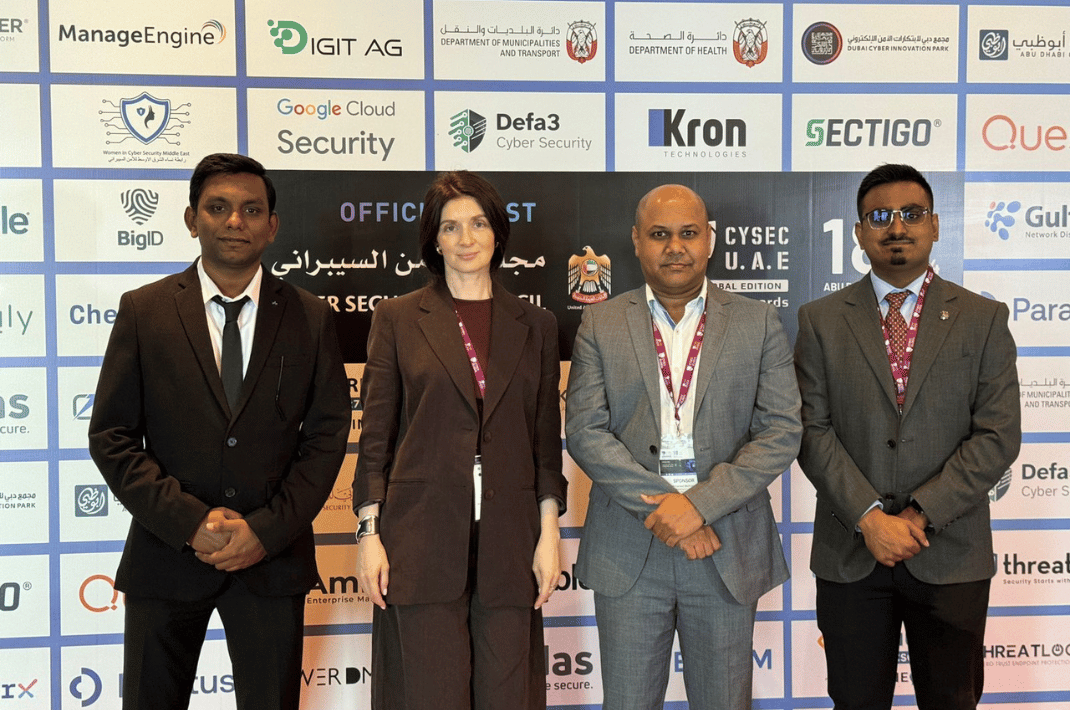30 Pro Suggestions For Picking A Cybersecurity Company in Dubai
30 Pro Suggestions For Picking A Cybersecurity Company in Dubai
Blog Article
Top 10 Tips To Assess The Range Of Services Of A Cybersecurity Company Located In Dubai, Uae
1. Choose Core Services OfferedBegin your search by identifying the core services that are provided by the firm. The most popular offerings are risk assessments as well as incident management, threat management, vulnerability assessments as well as penetration testing and security audits. Understanding their core competencies will help you to determine if they are in line with your particular requirements.
2. Examine Managed Security Service
Find MSS that are managed. MSS providers deliver continuous monitoring and management of security systems, which can be essential for businesses lacking in-house expertise. Through assessing their capabilities, you are able to determine their ability provide ongoing assistance.
3. Assess Compliance and Regulatory Services
Check if the cybersecurity company offers services that comply with international and local regulations. It is possible that you require assistance with GDPR or PCI DSS. A keen focus on compliance is essential for organizations working in highly controlled industries.
Review Incident Management Capabilities
Examine whether the business offers incident response services. A comprehensive plan for incident response will cover detection, containment and eradication of the threat in addition to the recovery process, lessons learned and recovery. Understanding the company's approach to incident management can help you determine their level of preparedness for security breaches.
5. Specialized Services
Find specialized services tailored to specific needs or sectors. You might find IoT security, cloud security, or protections that are specific to industries such as healthcare or finance. Specialized services are a sign of a firm's capabilities and willingness to tackle particular challenges.
6. Consider Training and Education Programs
Make sure that the company provides education and awareness programs for your employees. Training is crucial to decrease human error, which is the most common cause of security breaches. Businesses that provide comprehensive training can enhance your overall security posture.
7. Check for Threat Intelligence Services
Find out if the business offers threat intelligence services. These services keep organizations informed of new vulnerabilities and threats. They also provide proactive security measures. Your security strategy can be significantly enhanced by a strong threat intelligence capability.
8. Evaluate Technology Partnerships
Review the relationship between the business and technology vendors. Collaborations with top providers of cybersecurity tools can improve the services provided and provide access to the latest solutions and tools. An extensive technology ecosystem can help to provide stronger security measures.
9. Customization and Flexibility
You should look for a company that can customize the services it offers to suit the specific requirements of your organization. In the field of cybersecurity, a one-size solution that works for all organizations may not be enough. Knowing the flexibility of the company in the design of their solutions is vital to addressing specific risk.
Review Service Level Agreements
Also, take a look at and review the Service Level Agreements (SLAs) that are associated with the services provided. SLAs must clearly define the nature of services, response times, and performance metrics. Knowing these agreements will help set expectations on the quality of service. Take a look at the most popular Cybersecurity Company in Dubai for site advice including best cybersecurity firms, ai and cybersecurity, best cybersecurity firms, learn computer security, cyber security tools, network and security solutions, network security software, best cybersecurity firms, cyber security tech, network security solutions and more.
Top 10 Ways To Evaluate The Ability Of An Incident Response Team An It Security Company
1. Understanding Incident Response FrameworkBegin your investigation by studying the framework for incident response that the company uses. If the framework is clearly defined, as in the NIST Cybersecurity Framework, or SANS Incident Response Process for instance, it means that the business follows industry best practices to manage incidents effectively. Ensure they have a structured approach to incident handling.
2. Evaluate Incident Response Team Expertise
Be aware of the experience and qualifications that the members of your team for incident response are certified with. You can look for certifications like Certified Incident Handler GCIH or copyright Security Professional copyright. Team members with a solid understanding in the discipline of incident management and mitigation can effectively manage and reduce the risk of incidents.
Study past Incident Case Studies
You can also request case studies or examples from the company about previous incidents they've handled. Studying the way they handle actual situations will give you insight into their efficiency, speed and overall strategy for managing incidents. Look for detailed accounts of how they detected, contained, and resolved incidents.
4. Check for 24/7 Incident Responder Availability
Check if they have emergency response 24/7. A cybersecurity incident can occur any time. An emergency response team that is available 24/7 can minimize the damage while also reducing recovery time.
5. Request Information on Incident-Detection Tools
Review the tools and technologies the company employs for monitoring and detection of incidents. The most effective detection tools, such as Security Information and Event Management (SIEM) systems, as well as intrusion detection systems (IDS), are essential to identify potential dangers quickly and efficiently.
6. Examine Communication Protocols
Find out what the business's communication strategy is with its stakeholders in the course of an event. Communication is crucial to coordinating responses, educating all stakeholders and making sure that everyone knows the role they play in the event of an incident. It is crucial to know what the company does to keep its customers updated on all aspects of the reaction.
7. Examine the Post-Incident Review Processes
Ask about the company's review procedure following an incident. The thoroughness of reviewing after an incident can help identify what lessons were gained and what improvements could be implemented. Companies that make adjustments as a result of these reviews will be more effective.
8. Evaluation of strategies for Remediation and Recovery
Knowing the methods the company uses to repair and recover from an incident is crucial. Effective recovery plans outline how systems and information are repaired while making sure to consider vulnerabilities in order to prevent future incidents. Ask about their strategy for recovering systems and securing them following an incident.
9. Examine compliance with regulatory requirements
Make sure that your incident response capability is in line with the applicable regulatory requirements. Based on the industry you work in there could be particular requirements regarding reporting incidents and response. A company that is aware of the regulations can ensure the compliance.
10. Seek out testimonials and references.
Finally, you can also seek references from current clients who used the service. Customer testimonials can give useful information about their efficiency and reliability as well as overall satisfaction with the services provided during incidents. View the recommended application penetration testing dubai for blog tips including security network security, manage security services, cyber security website, data secure, cyber security business, security it company, information security description, cybersecurity consultancy services, best cybersecurity firms, security solution and more.
Top 10 Suggestions For Evaluating The Contracts And Prices Of A Security Services Company
1. Begin by getting familiar with the pricing model of the company. Models include hourly fees, fixed-price contracts, and subscription services. Understanding these models helps you decide which one will most effectively fit your budget and how expenses accumulate over time.
2. Request for Quotes
Get detailed quotes which include all charges involved in providing the services. A transparent quotation should include descriptions of the services, associated costs, and any other costs that could be incurred. This will help keep any unexpected costs from coming up down the road.
3. Evaluation of Service Packages
Find out if they provide bundles of services. Bundling your services may save you money over purchasing them separately. Evaluate the available packages and decide if your requirements can be met and you also gain financial benefit.
4. Please inquire about any additional charges
Consider additional costs that you may not have anticipated. The cost of emergency assistance, travel costs or overtime could all be included. Knowing the cost of ownership in total is crucial for a proper budgeting.
5. Examine Contract Flexibility
Check the flexibility of contracts offered. Find out if they provide the flexibility to scale services either up or down in accordance with your changing requirements. Contracts with too much rigidity could result in unnecessary expenses or hamper the ability to change services.
6. Review the Commitment Requirements
Knowing if the pricing structure requires an extended commitment is crucial. Certain companies provide lower prices for contracts with a long term duration, however they could bind you to a commitment. Consider the pros and cons of the contract.
7. Review the Termination Clauses
Learn the conditions in which you may end the agreement as well as any penalties associated with it. Understand the conditions under which you can terminate the agreement and the penalties that go with it. You may use a fair-termination policy to exit if you feel that the services offered do not meet expectations.
8. Evaluation of the Payment Terms
Be sure to inquire regarding the terms and conditions of the payment. Know when the payment will be due, whether you are able to pay by installments, and if you can get discounts for making payments in advance. The cash flow management process is improved when there are specific payment conditions.
9. Clarification on SLA Penalties
Examine the Service Level Agreements associated with the contract. Pay particular attention to penalties for not achieving the service level specified. Knowing these penalties will provide insight into the company's commitment to quality service and accountability.
10. Compare with Competitors
Compare prices and contract conditions to those of other cybersecurity companies that are based in Dubai or UAE. These benchmarks can help you gauge the competitiveness of the services and make sure that you get the most value from your investment. Read the top rated iconnect for more recommendations including cyber & network security, careers in cyber security, cybersecurity and business, it security jobs, information security and, network security and cyber security, cybersecurity and business, network security software, cyber security information, cyber security company near me and more.